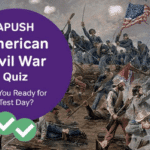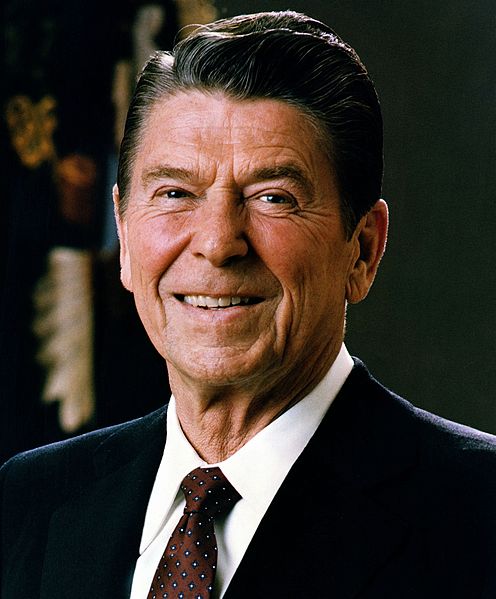Getting ready for your AP United States History Exam this spring? More than likely, there are some topics you feel stronger about than others. The American Revolution is a central topic on the exam, so we’ve devised an APUSH American Revolution quiz so you can get a sense of how well you know this material. After you’ve taken the APUSH American Revolution quiz, scroll down for additional answer explanations, as well as other APUSH resources.
And remember, no peeking at the answers below before taking it!
APUSH American Revolution Quiz Answer Key With Explanations
Q#1 – He famously said in a speech before the Virginia Commonwealth, “Give me liberty or give me death.”
A- Patrick Henry
Explanation: On March 23, 1775, Patrick Henry gave a speech at the Second Virginia Convention. This speech, including the empowering line, “Give me liberty or give me death,” is often credited for passing the resolution to assemble Virginia’s troops for the Revolutionary War.
Q #2 – Thomas Paine is associated with which political pamphlet, in which he pushed for the overthrow of what he believed was tyranny?
A- Common Sense
Explanation: Thomas Paine was an activist born in Great Britain who is one of the United States’ founding fathers. Common Sense, one of the pamphlets he authored, was incredibly influential in inspiring the patriots to declare independence from Great Britain in 1776. The text offered a new argument for independence rooted in Enlightenment theories of human rights.
Q#3 – What was the name of the conflict that raged between 1754-1763, pitting two European nations against each other?
A- The French and Indian War
Explanation: The French and Indian War started in American and moved Europe, becoming part of the Seven Year’s War. It was fought between the French and British over American expansion. The French received help from the Mohawk and Algonquin Indians while the British received help from the Iroquois. The British eventually captured Quebec and Montreal, ending the war.
Q #4 – The tax on tea, at the time, was part of a broader leveling of duties against the colonialists, which included paper, lead, and paint. What was the name given to these acts?
A- The Townshend Acts
Explanation: The Townshend Acts were a series of taxes on goods imported to the American colonies. These acts were enforced by British troops in America, and were considered unfair by colonists, who had no representation in parliament.
Q #5 – What was the name of the first military engagement of the Revolutionary War?
A- Lexington and Concord
Explanation: The Battles of Lexington and Concord commenced on April 19, 1775, and marked the start of the Revolutionary War. Facing rebellion, the British attempted to seize arms being stored in Concord, Massachusetts. Paul Revere and other riders warned of British invasion and assembled troops accordingly. The defensive gunfire that ensued has been come to know as “the shot heard ‘round the world.”
Q #6 – What was the name of the British group in parliament who were against the war and helped hasten the end of the war?
A- Whigs
Explanation: The Whig Party was an American political party from 1834-54. They opposed what they saw as President Jackson’s tyranny, and consisted of former members of the National Republican and Anti-Masonic parties. Among many other platforms, they also advocated for ending the war.
Q#7 – Which of the following was NOT one of the acts passed by head of the Parliament at the time, George Grenville?
A- Imprison Act.
Explanation: The Quartering Act was passed in 1765 and required colonies to provide food, housing, and other provisions to British forces occupying their territory. The Stamp Act, also passed in 1765, taxed all papers in colonies, including newspapers, pamphlets, legal papers, etc.
Q#8 – The Declaration of Independence was signed in which year?
A- 1776
Explanation: The Declaration of Independence was signed in 1776 and detailed all of the reasons the American colonies sought independence from Great Britain.
Additional American Revolution Resources
Other Themes on the APUSH Exam
In addition to information on the American Revolution specifically, you’ll also want to brush up on the following themes, which will be tested across the exam:
Other Ways to Prepare for the APUSH Exam
Know your APUSH basics
You’ve probably been discussing this exam all year in your AP US History course, but it can be helpful to review the actual structure of and assessments on the test on your own. This APUSH overview goes over exactly what will be on the test, including question formats and types. It also covers key concepts, events, and strategies.
This is also a great resource covering 9 thematic topics on the APUSH exam, to help you brush up on everything from the British Colonies to the Cold War. Along those lines, it’s also worth studying the specific historical periods that show up on the APUSH exam.
Take an APUSH practice exam
You know the saying: practice makes perfect! You probably take practice tests in your AP US History class as part of your curriculum, but you can always take them at home as well. Here are some tests for more practice:
Take these other APUSH quizzes
If you liked the APUSH American Revolution Quiz, check out these others!
Form APUSH study groups and share resources
Let’s face it, working together is always more fun. Try getting together with a few peers from your AP US History course weekly to refresh yourselves on key concepts, review practice test questions, divide and conquer searching for answers, etc. Here are some of our favorite APUSH resources:
A Final Word on APUSH Testing Day
AP Exams can be stressful, and there’s a lot of information on the AP US History exam, but we believe in you! The earlier you can start studying, the better, and here are some tips for studying smarter.
Are you looking for more AP US History Exam Prep? We’ve got you covered!
Happy studying and best of luck on test day!




Leave a Reply